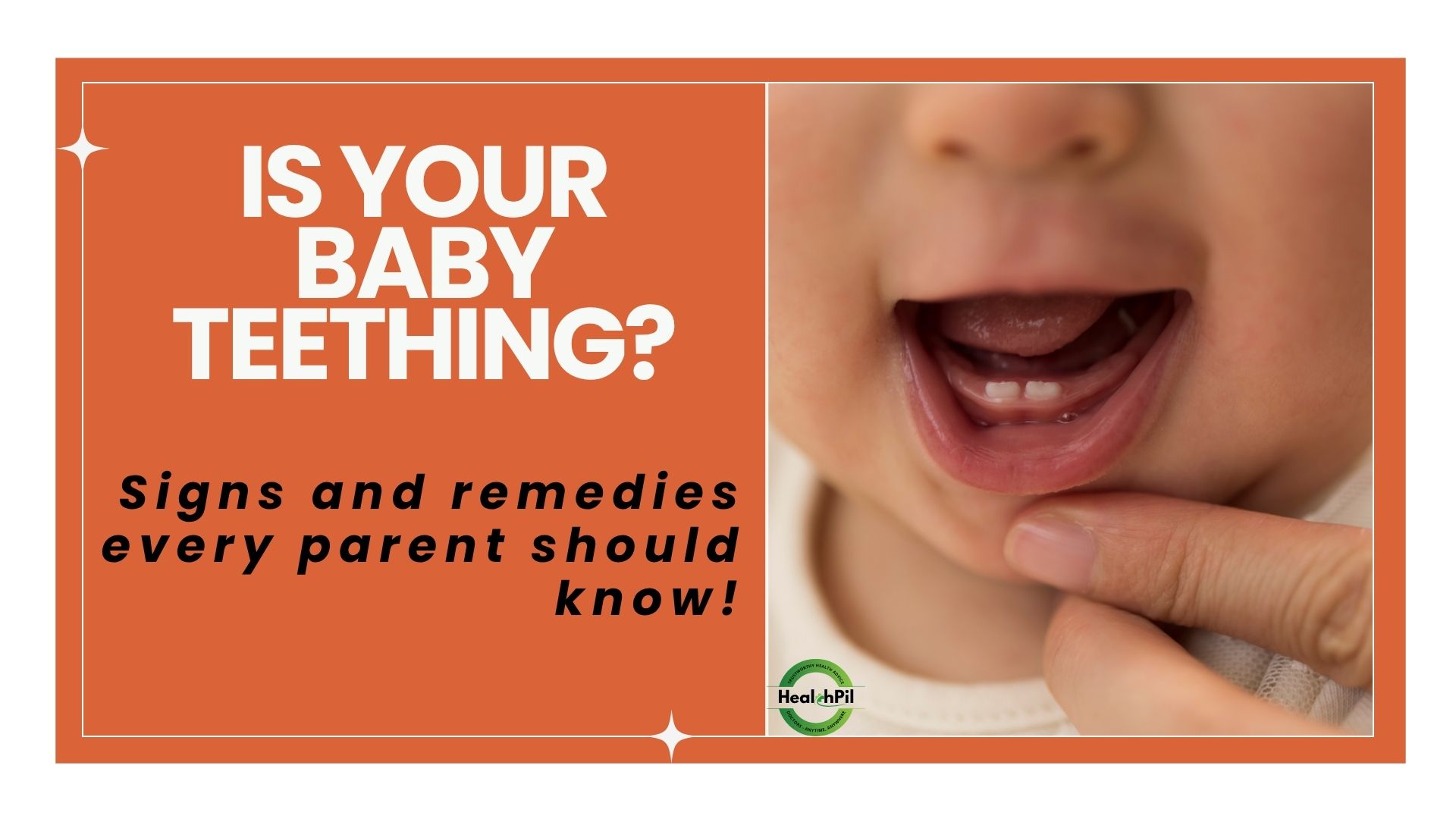
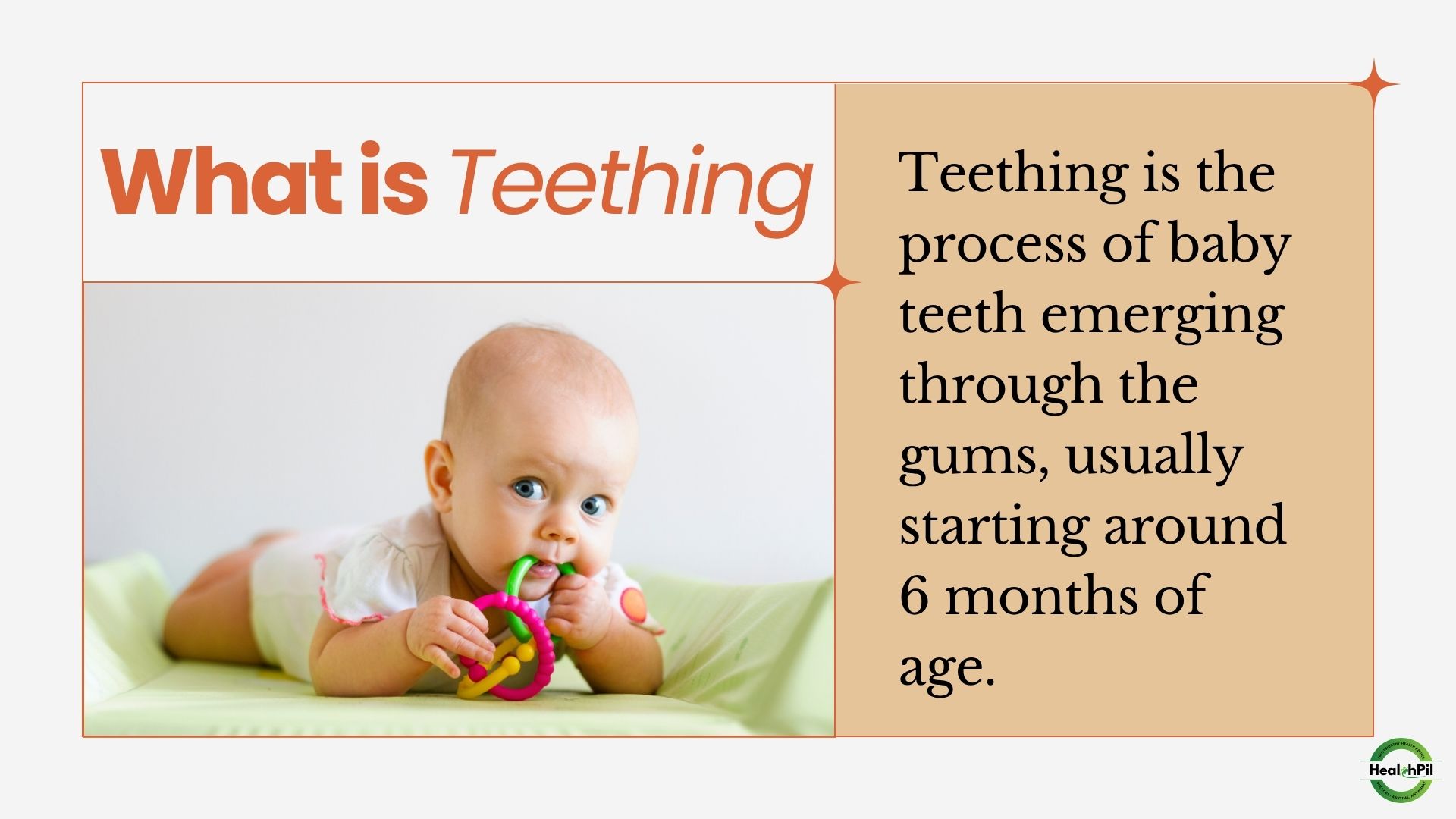
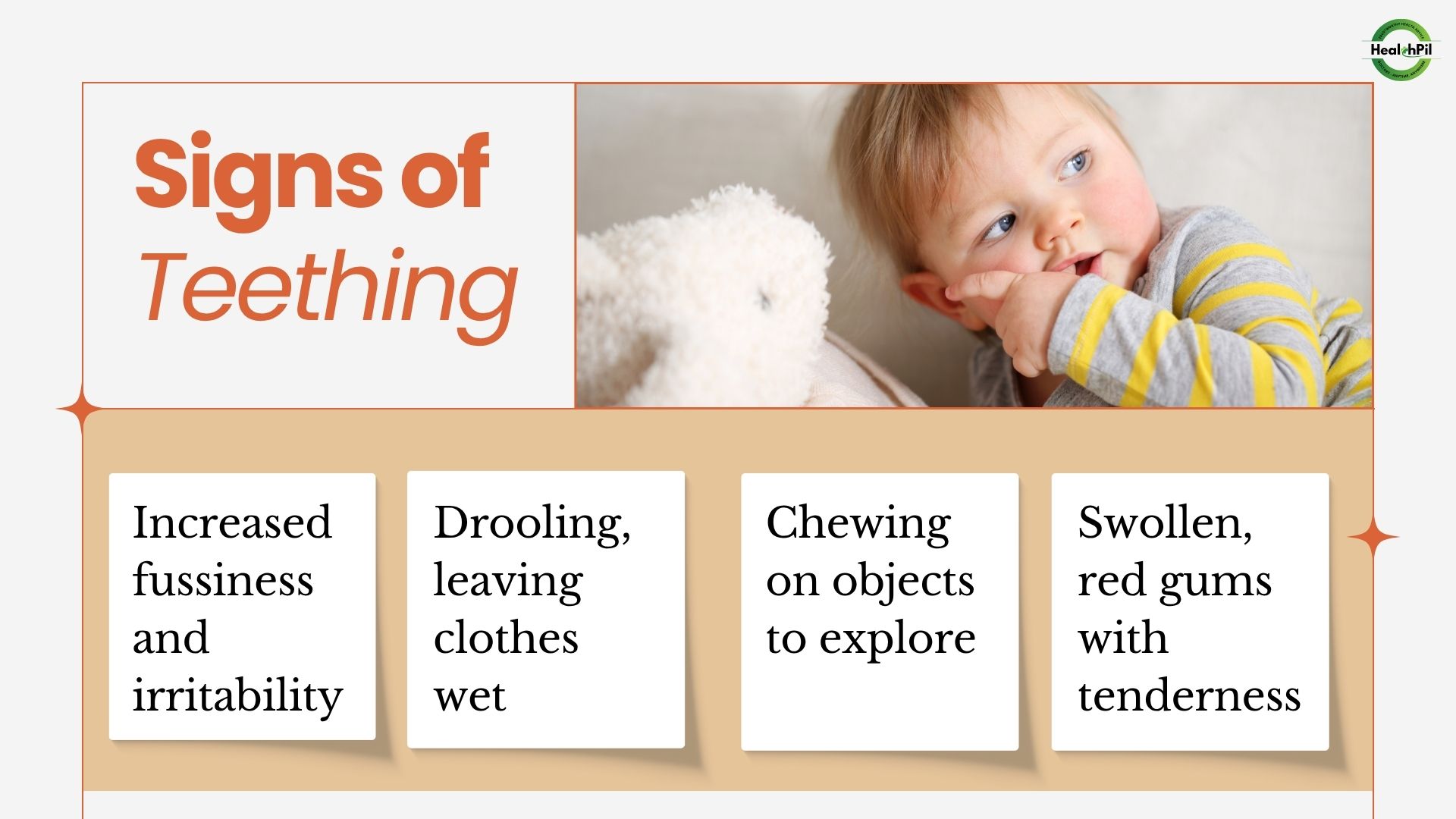
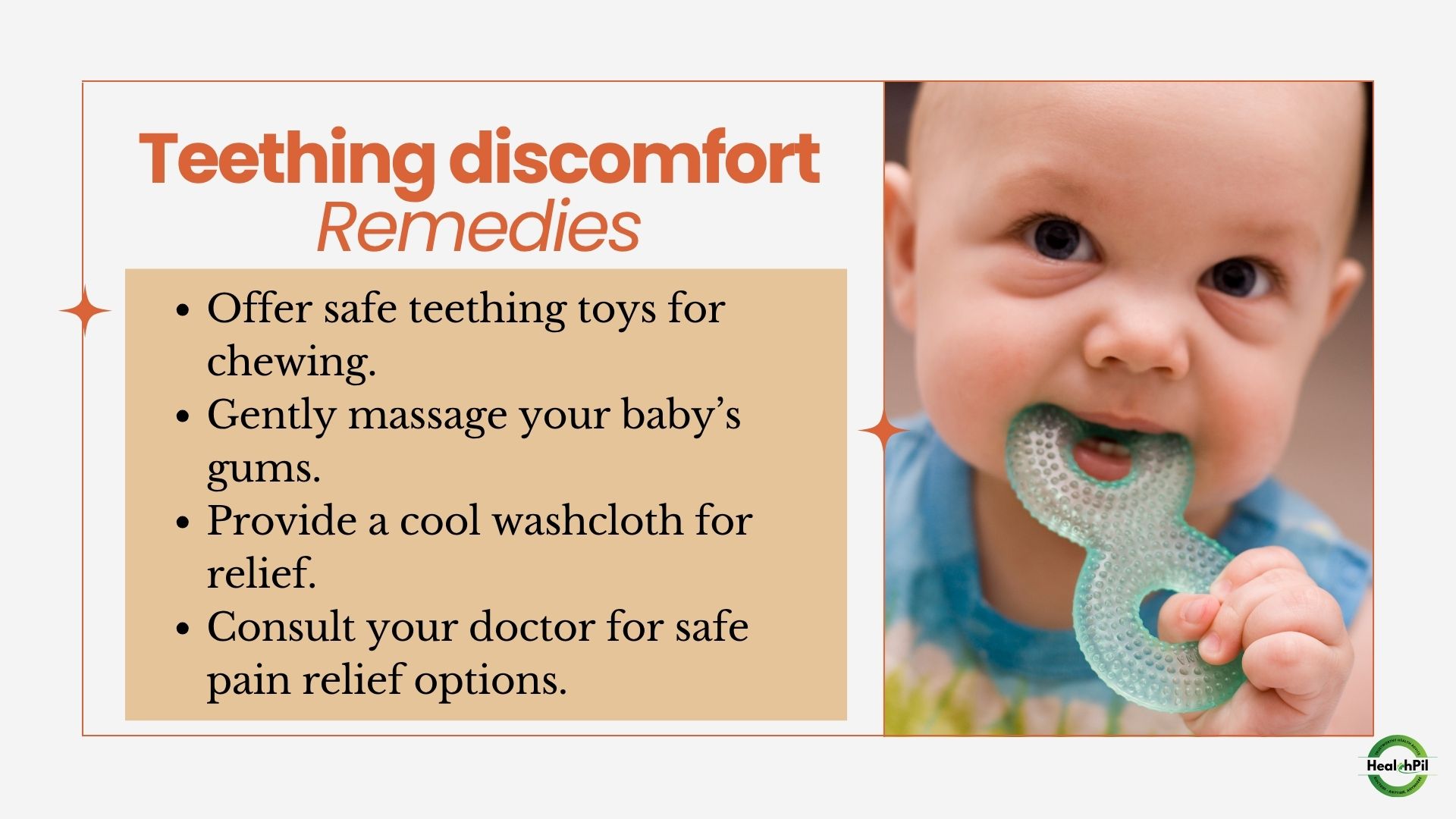
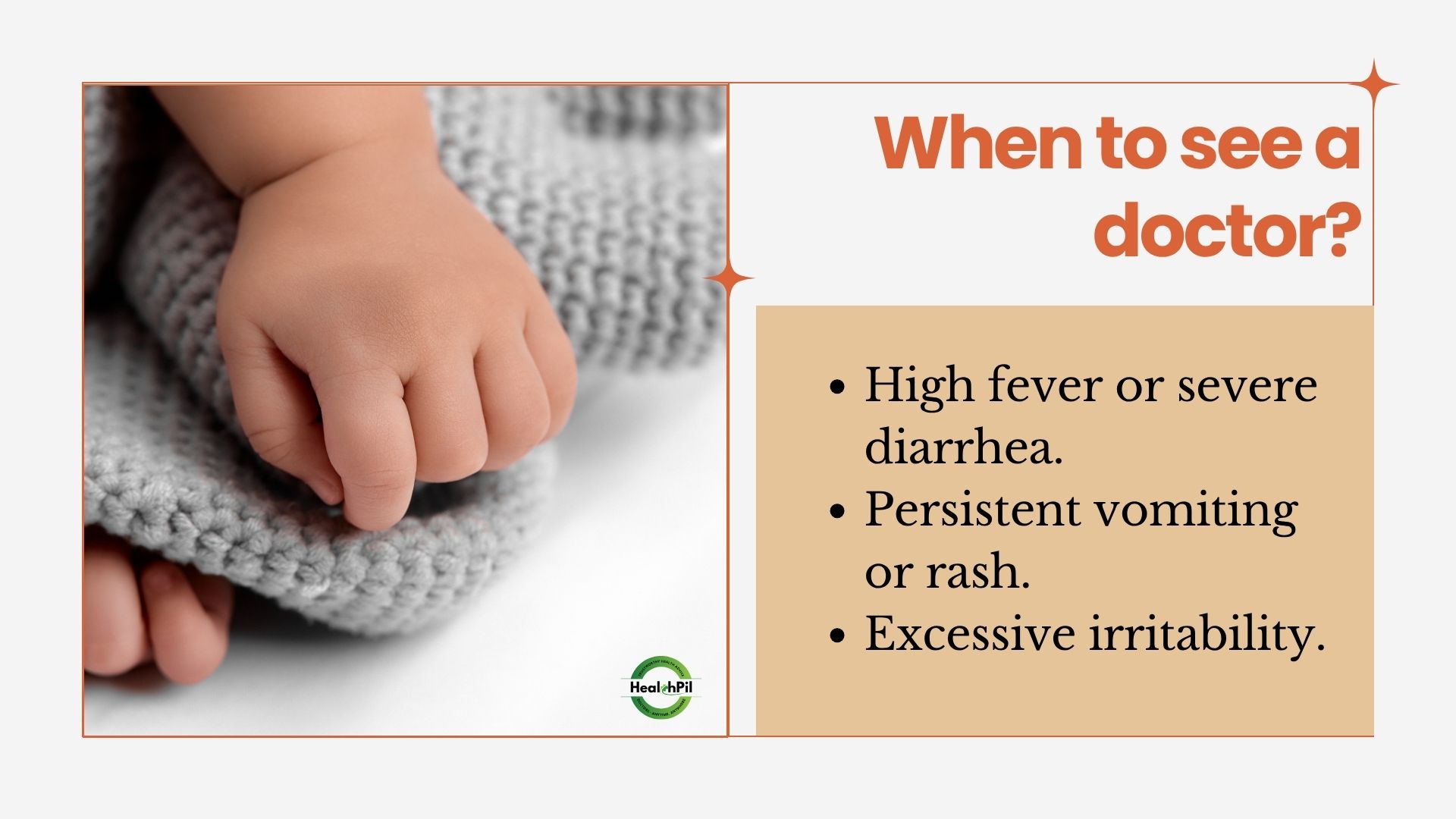
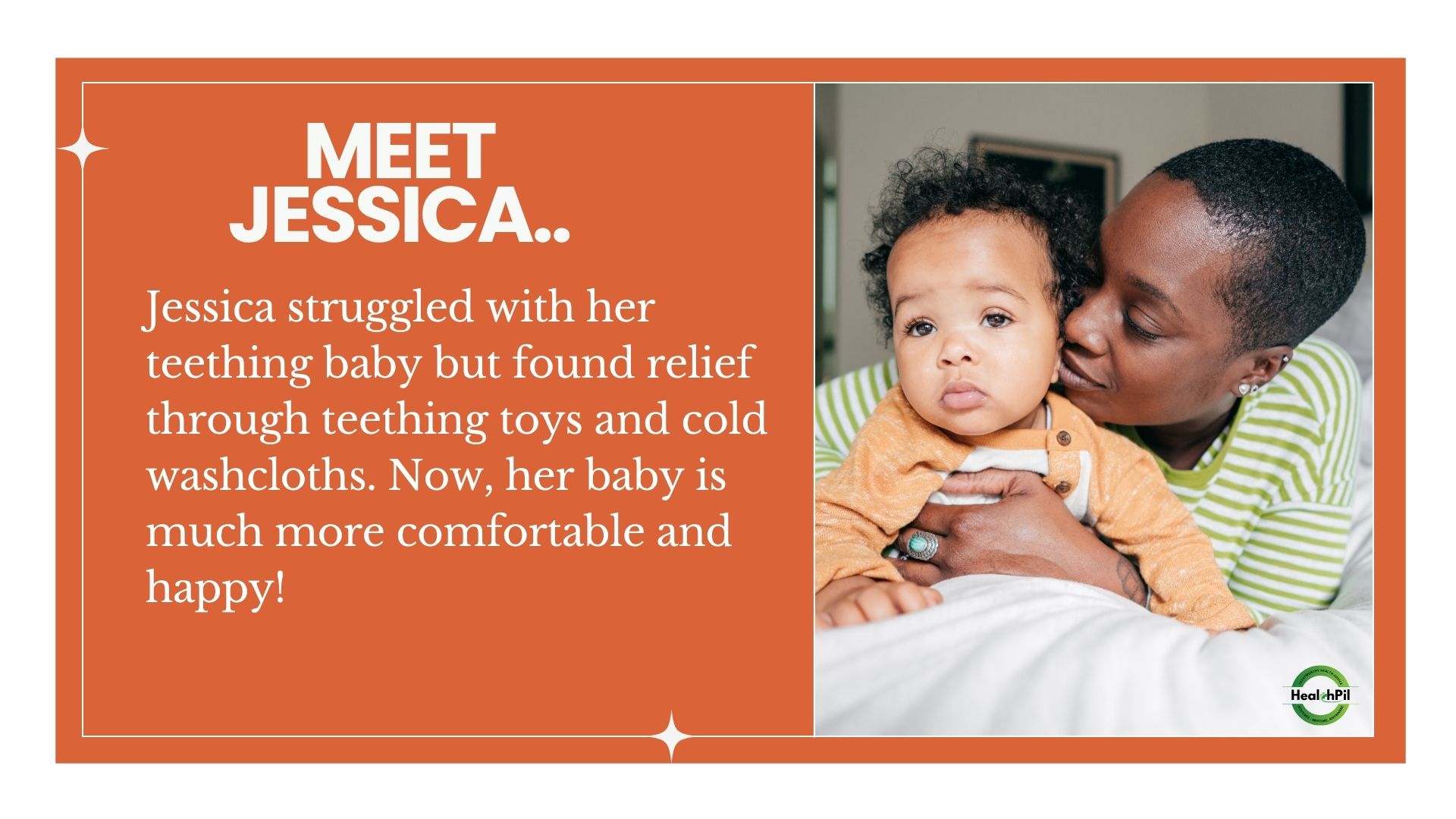
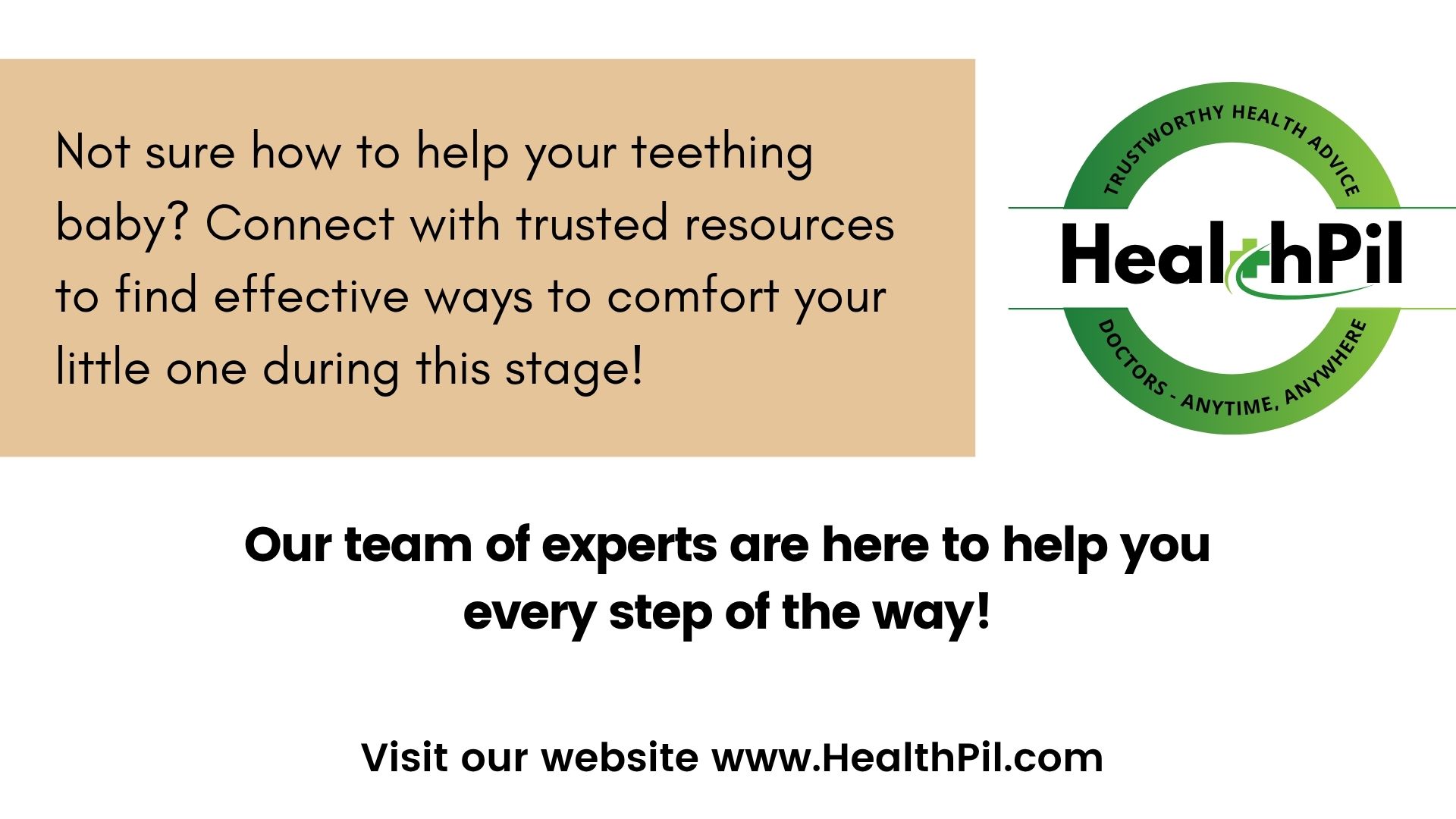
Teething is a natural milestone in your baby’s development, but it can often be a challenging time for both the child and the parents. Knowing what to expect with teething, spotting the early signs, and having a few soothing tips up your sleeve can make this stage a lot smoother for you and your little one. This article will guide you through everything you need to know about teething.
What is Teething?
Teething refers to the process of primary (baby) teeth emerging through the gums. Teething usually starts around 6 months, though some babies might begin a bit earlier or later. The first teeth to appear are typically the bottom front ones, known as the lower central incisors, followed by the top front teeth, or upper central incisors.
Signs of Teething
While every baby is different, common signs of teething include:
1. Increased Fussiness:
● Babies may be more irritable and fussy than usual due to discomfort.
2. Drooling:
● Excessive drooling is common during teething, leading to wet clothes and potential rashes.
3. Chewing on Objects:
● Babies may chew on toys, fingers, or other objects to relieve gum pressure.
4. Swollen Gums:
● Look for red, swollen gums, particularly where teeth are about to emerge.
5. Changes in Sleep Patterns:
● Discomfort from teething may disrupt your baby’s sleep, leading to more frequent awakenings.
Remedies for Teething Discomfort
1. Teething Toys:
● Provide your baby with safe, soft teething toys to chew on. Refrigerated teethers can provide additional relief.
2. Gum Massage:
● Use a clean finger to gently massage your baby’s gums. This can help ease discomfort.
3. Cold Washcloth:
● Offer a clean, damp washcloth that has been cooled in the refrigerator. The cold texture can be soothing on sore gums.
4. Pain Relief:
● Consult your healthcare provider about over-the-counter pain relief options, such as acetaminophen or ibuprofen, suitable for infants.
5. Distraction:
● Engage your baby in playtime to distract them from discomfort. Activities that require focus can help shift their attention.
When to Consult a Healthcare Provider
While teething is a normal process, consult your healthcare provider if your baby experiences:
● High fever (over 101°F)
● Severe diarrhea
● Persistent vomiting
● Signs of rash or infection
● Excessive irritability that cannot be soothed
Frequently Asked Questions
When does teething usually start?
Teething typically begins around 6 months, but can vary from baby to baby.
How long does the teething process last?
Teething can last until your child is about 3 years old, as all primary teeth emerge.
Can teething cause fever?
While mild temperature increases may occur, high fever is not typical and may indicate an illness.
Is it safe to use home remedies for teething?
Many home remedies are safe, but always consult your healthcare provider before trying new methods.
What are the signs of a tooth infection?
Look for persistent swelling, redness, or pus around the gums, along with fever or extreme discomfort.
Conclusion
Teething is a natural process that all babies go through, but it can be uncomfortable. By understanding the signs and implementing effective remedies, parents can help soothe their babies during this time. Remember, each baby is different, so patience and observation are key to navigating the teething journey.
Disclaimer
The information provided in this article is for awareness purposes only and should not replace professional medical advice. Always consult your healthcare provider for personalized medical guidance.
How HealthPil can help?
HealthPil Is Always Here for YOU!
● Need Guidance? Connect with healthcare experts ready to help you navigate gestational diabetes.
● Join Our Community: Gain access to tips, resources, and support from mothers just like you!
● Don’t Delay—Take Action! Your health and your baby’s future are too important to wait!
Contact HealthPil today and empower your pregnancy journey!
